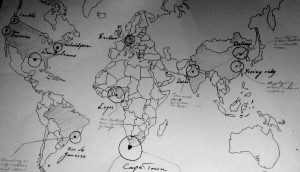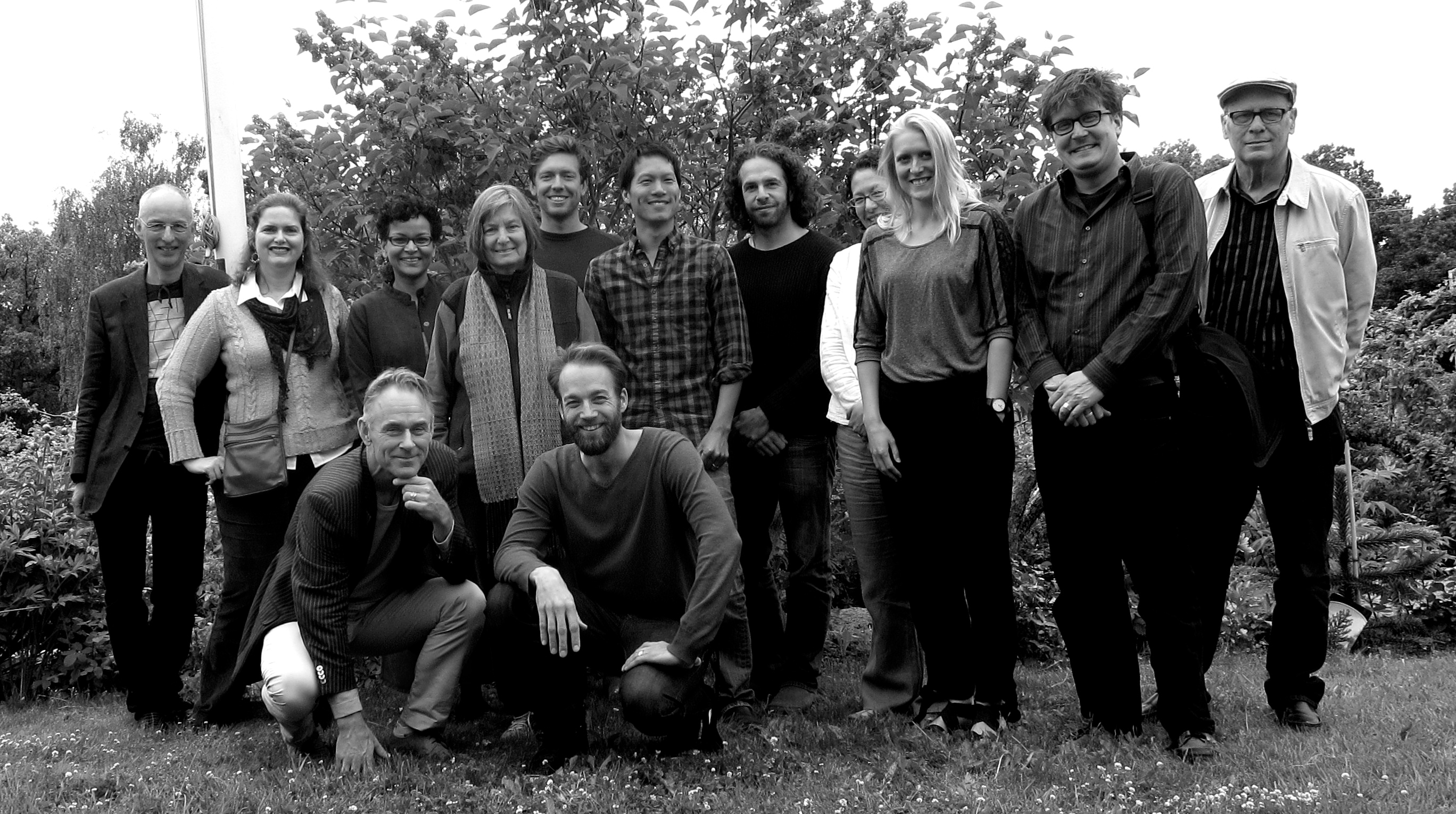Grounding Urban Natures - report from June book workshop in Stockholm
The book project on 'Contested Urban Natures' (and here) with case studies across the world is moving forward. We had a great workshop in June with the authors. The workshop was integrated with the PhD course on 'Urban Ecology as Science, Culture and Power' so all students had the chance to get to know this outstanding set of experienced scholars. Here comes a short report from our continuing work on the book.
 |
| Workshop whiteboard from Grounding Urban Natures |
Grounding Urban Natures—Traveling the World to Re-think Histories and Futures of Political Ecologies
The working title was changed to Grounding Urban Natures to emphasize how the book aims to situate urban natures over time and across the world. To situate becomes key in understanding the contested character of urban natures, regardless if is about nature reserves formed during Apartheid in Cape Town (Lance van Sittert), or how different ways of knowing urban ecology is shaped in post-war Berlin (Jens Lachmund), to draw examples from the book chapters being written.
Indeed, with increasing urbanization and ecological crisis, ‘the urban’ have become the site of increasing attention for understanding problems and finding solutions. This has created simplified policy models that circulate the globe to get inserted into practice—iterations like the ‘resilient city’, ‘green city’, ‘eco-city’, or notions of ‘urban agriculture’ and ‘ecosystem services’. Grounded research that articulates and analyses the history and contested character of urban natures, is however severely lagging behind, and we have few answers on what this present ‘greening’ of city agendas mean from a critical, historical, and world-wide perspective. Who wins, looses, gains voice, or is silenced? And how is the notion of ‘urban nature’ reworked across the world?
This edited volume therefore aims to fill a gap in urban environmental history and political ecology. It gathers environmental historians, anthropologists, sociologists, cultural geographers and political ecologists with studies from all continents, including emergent big cities like Lagos (Nigeria), Delhi (India), Dalian and Yixing (China); Cape Town (South Africa) and Rio de Janeiro (Brazil); but also ‘old world’ cities like Berlin; and US cities, San Francisco, Philadelphia, Seattle and New Orleans. Each chapter provides a rich narrative on how urban nature has been reworked over time and mobilized for different social, political and ideological purposes.
The aim is to learn from these varied disciplines and case studies to ground a broader academic debate in the decades to come on how to research, debate and contest the histories and futures of contested urban natures. The volume is partly an effort to undermine simplified models of ‘urban nature’ that now travel the world to be inserted into planning and governing to make 'green cities' or 'resilient cities'. It demonstrates the radical and important research agenda that can be formed through grounding urban environmental history and political ecology discussions in the multitude of urban experiences that our urban world offers.
Inspire students and fellow scholars
We hope the book will work to inspire students and fellow scholars to take an historical and situtated approach to their studies of urban environments. This is equally true for both social and natural scientific research projects, as also the materiality and biophysicality of urban nature is shaped by history and location, demonstrated by stream ecosystems of New Orleans (Joshua Lewis) and for residents living on submerged rivers in West Philadelphia (Anne Whiston Spirne).
The breadth of study locations and the broad disciplinary experience of those participating is really impressive and a joy to work with. The structure of the book is as follows with upcoming advanced drafts by end of November:
Introduction with aim, literature review and situating the book as a whole.
Section 1: [Un]expected Natures: Four chapters that aims to break ‘nature’ from its ‘green’ realm with accounts from New Orleans, Lagos, Rio de Janeiro, and Philadelphia.
Section 2: [Un]popular Natures: Five chapters on popular mobilization that have reworked urban nature materially and the ways by which urban nature can be known from San Francisco, Cape Town, Seattle, Dalian and Delhi.
Section 3: [Techno]logical Natures: Four chapters exploring how planning discourse and simplified versions of urban nature have travelled to Yixing city in China, ecosystem services in Cape Town, urban ecology as scientific practice in Berlin and ‘resilient city‘ in Baltimore.
Conclusion Concluding chapter and follow up.
Aiming for broad audience
We also decided to craft texts that can be read outside narrow disciplines and by students starting out with their studies, from natural to social sciences and the humanities. Our internal review process witwill help with this goal.
In the photo you see the authors (from left with home base and study location): Jens Lachmund (Germany, Berlin), Lise Sedrez (Brazil, Rio de Janeiro), Amita Baviskar (India, Delhi), Anne Whiston Spirne (USA, Philadelphia), Joshua Lewis (Sweden/USA, New Orleans), Jia Ching Chen (USA; Yixing city, China), James Evans (UK, multiple sites), Lisa Hoffman (USA; Dalian, China), Lindsay Sawyer (Switzerland; Lagos, Nigeria), Andrew Karvonen (UK; Seattle, USA), Richard Walker (France/USA, San Francisco). And the editors seated in front: Sverker Sörlin (Sweden) and Henrik Ernstson (South Africa/Sweden, Cape Town).
More reports will follow.
The workshop and PhD course was held at KTH Environmental Humanties Laboratory at the Institute of Technology in Stockholm.




Comments